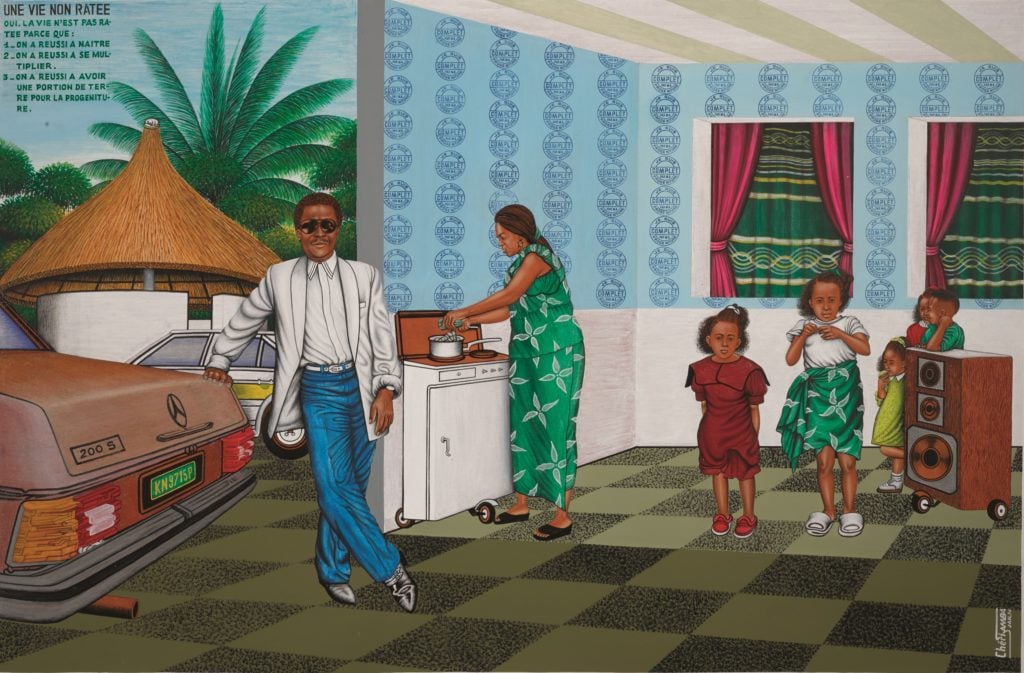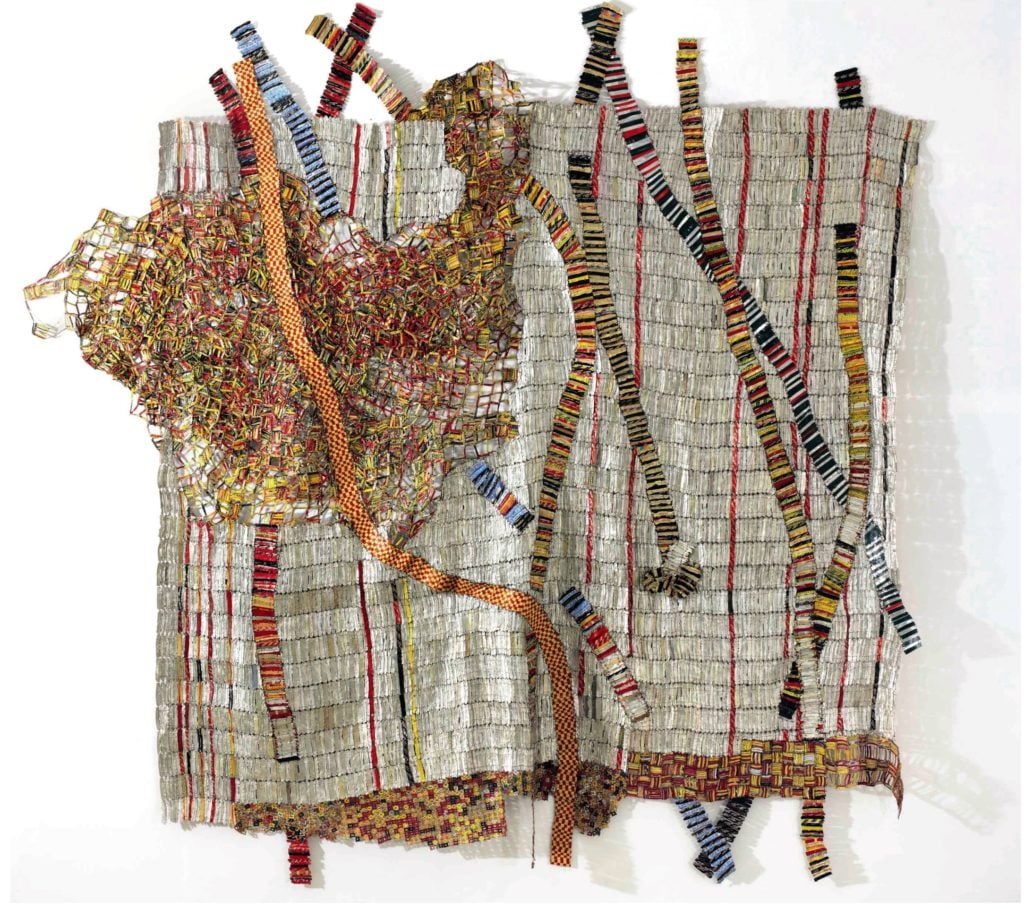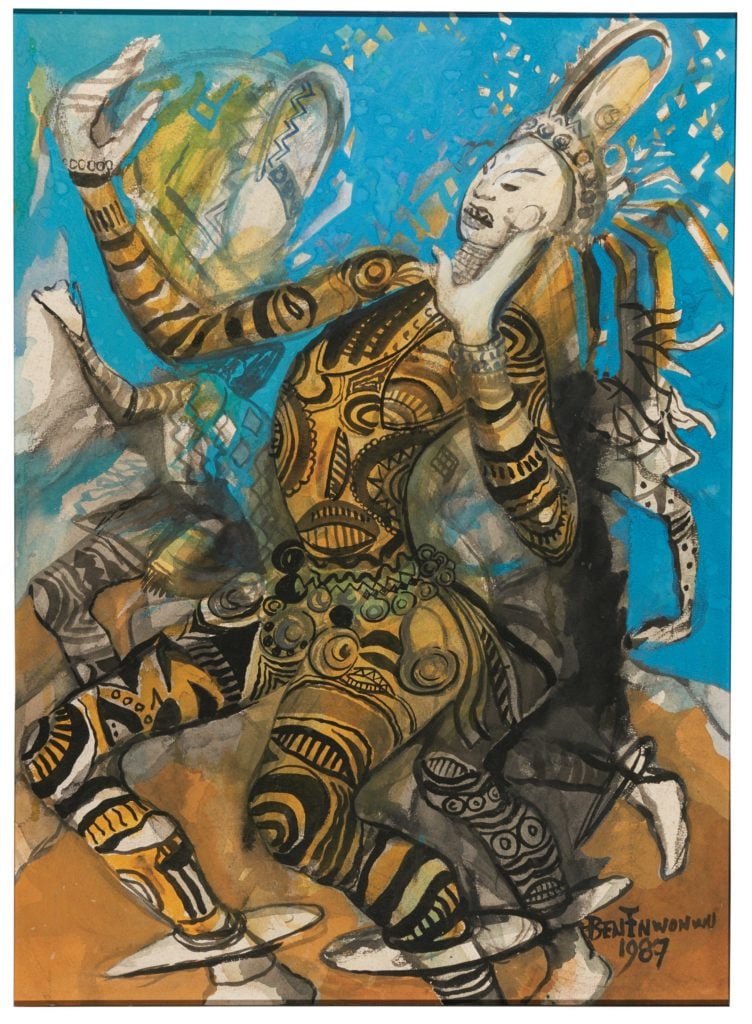Auctions
Sotheby’s to Hold Its First-Ever Contemporary African Art Sale
The auction house enters a market that's heated up dramatically over the last 10 years.

The auction house enters a market that's heated up dramatically over the last 10 years.

Eileen Kinsella

International interest in contemporary African art has been on the rise of late, but it seems to have reached a tipping point.
On Wednesday, Sotheby’s announced that it will hold an inaugural sale of modern and contemporary African art at its London sale room next month (May 16). For the first time, the auction house will group internationally recognized art stars such as El Anatsui, William Kentridge, and Irma Stern by geographic region as opposed to offering them in broader sales such as Impressionist or contemporary art.
“The marketplace for modern and contemporary art from Africa has transformed dramatically over the past decade, but despite this long-overdue correction, there’s still a considerable way to go towards addressing the under-representation of African artists,” said Hannah O’Leary, Sotheby’s head of modern and contemporary African art. She noted “an exponential increase in market demand from collectors in Africa and the African diaspora” as well as from international collectors who are “embracing art from Africa as exciting, innovative, and relevant.”
The sale will showcase 100 works, and is heavily represented by South Africa, which currently boasts the largest and most active market for art. Still, the representation overall is quite broad: 60 artists from 14 countries on the continent, including Algeria, Benin, Ghana, Ivory Coast, Mali, Nigeria, Senegal, Ethiopia, Uganda, Cameroon, and Democratic Republic of Congo. Overall it is expected to realize between £2.78 million to £3.98 million ($3.37 million to $4.84 million).

El Anatsui, Earth Developing More Roots (2011). Courtesy Sotheby’s.
Sotheby’s isn’t the first auction house to make a bid for the African art market. Bonhams holds regular sales of African and South African art, and Swann Galleries, New York, hosts broadly themed sales of African-American art that include both contemporary art and more historical materials. O’Leary describes Sotheby’s entrance into this realm as “a direct response to its current strength and its even greater potential over the coming years.”
Work by Ghanian artist El Anatsui is the most expensive at £650,000 to £850,000 ($832,000 to $1 million) for the hanging tapestry Earth Developing More Roots (2011), followed by Sunflowers (1942), a floral still life by top-selling South African artist Irma Stern, which has an estimate of £350,000 to £550,000 ($448,000 to $704,000).
Stern’s auction record is $4.9 million, set at Bonhams London in March 2011 for the work Arab Priest (1945). (The work had been estimated at $2.3 million to $3.2 million.) To date, more than 20 works by Stern have fetched over $1 million each at auction, according to the artnet Price Database. In all, the upcoming Sotheby’s sale will include five of Stern’s works.
O’Leary points out that a small number of the artists have been sold in other sale categories, such as contemporary art (William Kentridge, Yinka Shonibare) and Impressionist art (Irma Stern), and in single-owner sales such as Contemporary African Art from the Jean Pigozzi Collection in 1999 and Bowie/Collector in 2016.

Ben Enwonwu, Ogolo (1987). Courtesy Sotheby’s.
There are several reasons why South Africa has the most significant presence and art market on the continent, according to O’Leary. “There has been an active art market there,” she says, “with the supporting business structure of art schools, commercial galleries, auction houses, and museums, for the best part of a century. South Africa also saw phenomenal economic growth in the aughts (2000–2010) and is the country with the most private wealth in Africa.”
O’Leary notes that Nigeria also has a substantial market, with many galleries and collectors. But the demand extends well beyond continental borders. “I have seen enormous interest from the African diaspora and more general collectors of contemporary art. The artists included in this auction have exhibited internationally, from the US to China, Australia, and throughout Europe, and so have gained a following in all of those places.”
On Tuesday night, that trend could be seen in Paris, when the Louis Vuitton Foundation opened three complementary African art shows: “The Insiders,” a selection of works (1989 to 2009) from the Jean Pigozzi collection of African art; “Being There,” South Africa, a contemporary scene; and “Africa in the collection of Foundation Louis Vuitton.”
![Kudzanai Chiurai, <i>Genesis [Je n'isi isi] XI</i> (2016). Collection Fondation Louis Vuitton. Work belonging to the collection of the Fondation Louis Vuitton.<br /> © Kudzanai Chiurai. Courtesy of Goodman Gallery, Johannesburg.](https://news.artnet.com/app/news-upload/2017/04/LV-Kudzanai-683x1024.jpg)
Kudzanai Chiurai, Genesis [Je n’isi isi] XI (2016). Collection Fondation Louis Vuitton. Work belonging to the collection of the Fondation Louis Vuitton.
© Kudzanai Chiurai. Courtesy of Goodman Gallery, Johannesburg.